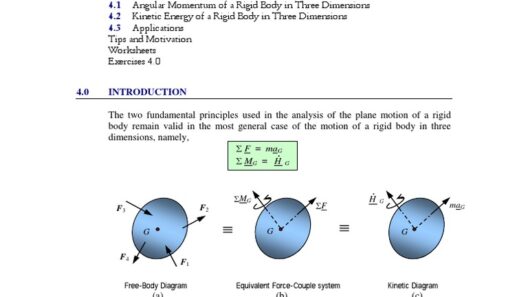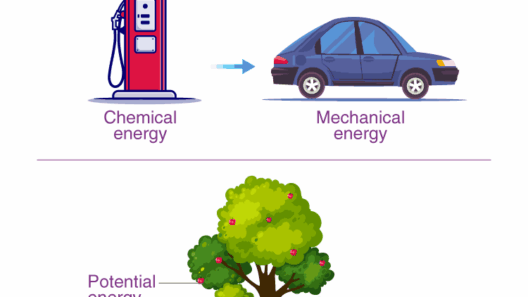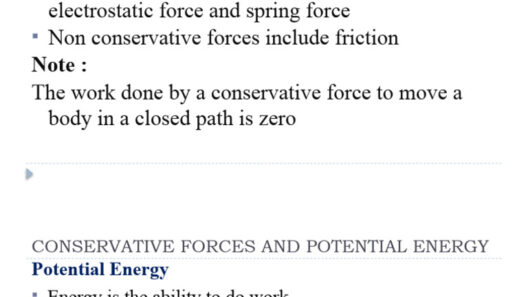When we talk about energy conservation, what comes to mind? Is it simply turning off lights when leaving a room? Or does it encompass a broader spectrum of practices and philosophies? Energy conservation is not solely about reducing consumption; it is a vital aspect of sustainable living and global responsibility. The concept addresses the prudent use of energy resources in a manner that ensures their availability for future generations. By understanding the nuances of energy conservation, we can better appreciate its implications for our environment and economy.
The first step in understanding energy conservation is defining it. Essentially, energy conservation involves the reduction of energy use through various strategies, including improved technology, behavioral modifications, and practices aimed at enhancing efficiency. For instance, using energy-efficient appliances reduces electricity consumption without sacrificing functionality. More transformative approaches include investing in renewable energy sources such as solar or wind power, which mitigate reliance on fossil fuels. Hence, energy conservation is crucial for protecting our natural ecosystems while simultaneously allowing us to meet societal needs.
A playful question arises: What would happen if everyone on the planet made a conscious effort to conserve energy? Would we witness an immediate impact on global warming, or would the changes be subtle and gradual? The answer lies in our collective approach. When individuals and organizations adopt energy conservation measures, the ripple effect can lead to significant reductions in greenhouse gas emissions and a decrease in the depletion of nonrenewable resources.
One of the fundamental principles of energy conservation is the concept of energy efficiency. Energy-efficient technologies require less energy to provide the same service. For example, LED light bulbs use up to 80% less energy than traditional incandescent bulbs while lasting significantly longer. This shift to more efficient technologies enables us to glean more utility from less energy, ultimately translating to economic savings and environmental benefits. As consumers, it is imperative to educate ourselves about energy-efficient options available in the marketplace.
However, energy conservation is not merely an individual endeavor; it necessitates a multifaceted approach that includes policies and regulations at local, national, and global levels. Governments play a crucial role in establishing and enforcing energy efficiency standards, which can drive widespread changes across various sectors, including transportation, industry, and residential communities. Moreover, public awareness campaigns can galvanize support for energy conservation initiatives, motivating individuals to re-evaluate their habits and consider their impact on the environment.
An intriguing exploration arises when we delve into the symbiotic relationship between energy conservation and sustainable development. Sustainable development advocates for meeting present needs without compromising the ability of future generations to meet their own needs. Energy conservation embodies this principle. By utilizing energy resources judiciously, we ensure their longevity and the permanence of the ecosystems that support life on Earth. Various models exist to illustrate this connection, emphasizing the interconnectedness of social, economic, and environmental legislation.
Yet, with every opportunity for innovation, challenges abound. The transition to energy conservation is fraught with obstacles that often deter progress. Behavioral inertia is one such barrier; many individuals find it difficult to abandon established routines, even when alternatives prove more efficient. Another challenge is the initial financial investment associated with energy-efficient technologies. Although the long-term savings are often substantial, the upfront costs may discourage immediate action. However, education and outreach initiatives can underscore the importance of energy conservation, transforming the perceived barriers into motivating factors for change.
It is also worth noting that energy conservation dovetails with other significant environmental challenges, such as waste management and water conservation. The interconnectedness of these issues suggests that holistic approaches are paramount. For instance, water conservation techniques like low-flow fixtures not only reduce water usage but can also diminish the energy expenditure associated with heating water. This synergy extends to food systems as well; adopting local, seasonal diets diminishes the energy consumed during transportation and storage, thus aligning with energy conservation aims.
As advancements in technology continue to emerge, the landscape of energy conservation is evolving. Smart home technologies and the Internet of Things allow for real-time monitoring and management of energy use. Appliances can communicate with each other, optimizing performance based on user habits and preferences. These innovations underscore the potential for energy savings while enhancing our quality of life. However, while technology presents opportunities for efficiency gains, consumers must remain vigilant to ensure that such tools are employed mindfully and not merely seen as a replacement for responsible behavior.
In conclusion, energy conservation is a dynamic and multifaceted concept that transcends mere consumption reduction. It embodies principles of sustainability, efficiency, and responsibility, ultimately shaping the future of our planet. By fostering awareness, promoting supportive policies, and harnessing technological innovations, we can collectively embrace energy conservation. The challenge lies in how effectively we motivate individual and collective action toward this goal. What legacy do we wish to leave for future generations? The answer may well depend on our commitment to conserve energy today.




